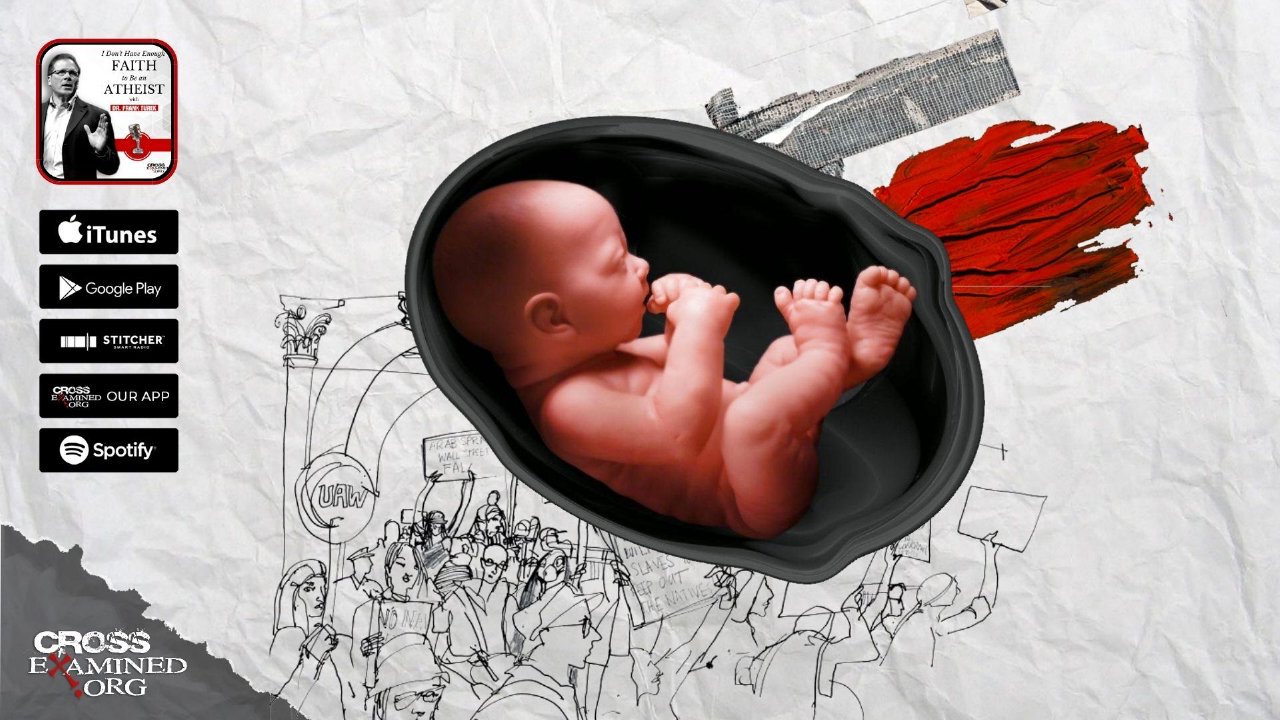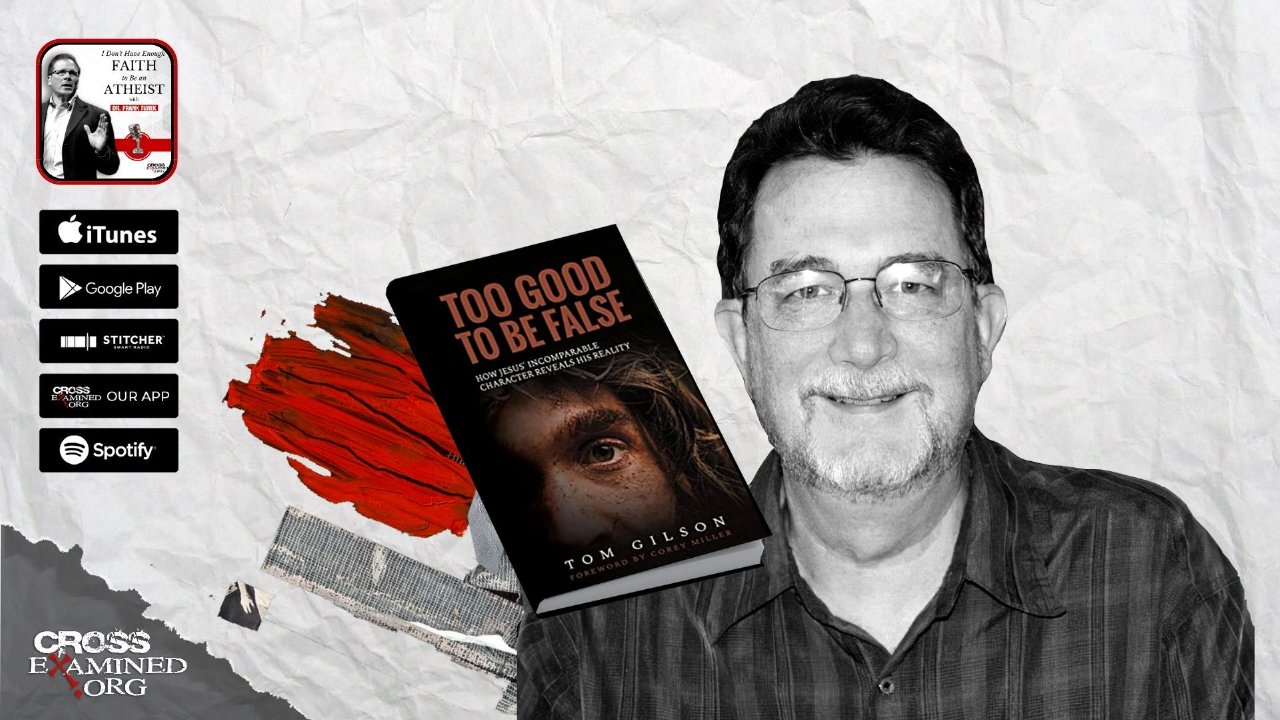By Al Serrato
“The fool has said in his heart, “There is no God.” If this passage from Psalms is correct, then many people today – including numerous scientists and other well-educated folks – are fools, for they insist that God does not exist. While name-calling is never productive, is there a way in which one might conclude that a person who denies God’s existence is indeed a “fool,” and not merely someone with whom we disagree?
Well, let’s begin with a look at the definition of “fool,” which includes “a person who has been tricked or deceived into appearing or acting silly or stupid.” Now, sometimes we trick ourselves and thereby make fools of ourselves. We might insist that a steady diet of fast food isn’t the reason that our clothes no longer fit the way they used to. On other occasions, it may be that we are misled. That tanning solution that promised to save you hours in the sun as left you looking a bit too orange to venture out in public. But whatever the source of our being misled, I think most would agree that a person who holds views that are inconsistent and contradictory has allowed himself to be deceived. Imagine a person proudly proclaiming that the prime rib he is about to eat is an important part of his vegetarian diet or the person who says that the only medicine that can save him is the one with no active ingredients. A person who proudly expresses views that are so in conflict has fooled himself, whereas a thoughtful observer would see things as they truly are.
Now, of course, some contradictions are not as obvious as the examples I just provided. Why, then, is it a contradiction to insist there is no God? It doesn’t appear to be contradictory – at first glance, anyway. For the answer to that question, we are indebted to St. Anselm of Canterbury, who lived and pondered these questions some ten centuries ago. I can’t do justice to Anselm’s argument in this brief piece, but perhaps some concepts borrowed from Anselm may help make the point.
The first avenue of inquiry requires consideration of just what it is that the human mind is capable of doing. We need to think about what “thinking” actually entails. Anyone who has seen a baby develop realizes that the human mind comes pre-programmed with an “operating system” of sorts. This system allows us to acquire language, to use reason, to recognize concepts such as fairness and truth and beauty, and other intangible things. It allows us to organize creation into categories, and perhaps most amazingly, to make use of the imagination. This ability for abstract thought lends itself to what we experience in an “I get that now” moment when a problem that has been puzzling us all of a sudden makes sense. We all use these systems of thought naturally and intuitively; they are part and parcel of the normally operating human mind. Of course, there is no other way since we could never use reason, for instance, to prove the validity or usefulness of reason.
One aspect of this ability for abstract thought is the ability to conceptualize or to place things into understandable categories. Food, for instance, can encompass a million different things, but to qualify as food, the object in question must be edible and serve to nourish, and not poison, us. We can call an ash tray food, but the underlying thing is not a matter of what we call it, but of what it consists. A tree trunk in the woods can function as a “chair,” but the surface of a swimming pool cannot.
So, with this observation in view, let’s turn to the question of God. Let’s consider for a moment, not what a definition of God might be, but what the conception of God is. What is it that we are struggling to grasp when we use that term? Anselm’s definition was simply this – God is that being a greater than which cannot be conceived. Whatever attributes God would have – omnipotence, omnipresence, perfect goodness, etcetera – if you can conceive of a being with all those attributes plus an additional one, then the latter being, the being with the greater attributes, would be God. So, imagine two beings then – each with exhaustive, infinite powers. Both beings have every possible attribute of perfection that can be conjured up in the human mind until one reaches the attribute of necessary existence. As I make use of my imagination and my ability to reason to flesh out what I am thinking about when I consider God, I realize that one of these two superlative beings has the attribute of necessary existence – it is not possible for this being to not exist. The other being, on the other hand, lacks this attribute. This latter being may or may not exist, or he may come into existence at some point and go out of existence and some other point. Now, as I compare these two conceptions, I immediately and clearly can see that the former – the one with necessary existence – would be the greater of the two. Consequently, to fully conceive of God, we must be conceiving of a Being who can’t not exist, whose existence must always have been and will always continue to be. Anything else –anything less – simply cannot fit the conception of God.
So, what does that prove? Maybe this conception of God is imaginary and, consequently of no value. Not so, Anselm would contend. And here’s why: the mind is not capable of conceptualizing something that does not in fact exist, that does not relate to something real. Now, this premise is a bit harder to get one’s mind around. The normal response to this part of the argument is that we create imaginary things all the time, from unicorns to tooth fairies to Jedi Knights. These things aren’t “real,” even though we can conjure them up in our fantasies. But each of these things, while imaginary, is the combining of things that are real: a horse and a horn; a person with wings and unusual powers; a warrior with special abilities and unusual weapons. And, and most importantly, neither a unicorn nor a tooth fairy nor a Jedi Knight would possess the attribute of necessary existence. If a unicorn did exist, it would have to consist of a horse with a single horn in its head; but its existence could have occurred briefly in the distant past, or could arise in the distant future or could not occur at all. We can fully conceptualize such a creature – we can place it in its proper category mentally – even if the creature does not presently exist. This is so because the conceptualization of these things does not require that them to actually exist in the here and now. For God, by contrast, the only way to properly conceptualize Him is as a necessarily existent being. If you are not seeing Him that way, says Anselm, you are not yet thinking about God, but about something lesser.
This foray into philosophy can be difficult. Fortunately, there are many other proofs for God’s existence, ones much easier with which to grapple, but this one stands out for its elegance. For if it has merit, then God has embedded within us the means to find Him in the one place we have exclusive and special access to: in the recesses or our very minds, there for us to uncover with a bit of critical thinking.
Getting back then to the initial question, if Anselm is right, the fool who denies God is saying something like, “I believe that the Being who must necessarily exist does not exist.” A rather foolish thing to say, when you see it clearly.
The Bible says that God has written His law on our hearts. Perhaps if we probe a bit deeper still, we can also begin to see in its depths the first faint scratching of His signature.
Recommended resources related to the topic:
I Don’t Have Enough Faith to Be an Atheist (Paperback), and (Sermon) by Norman Geisler and Frank Turek
Stealing From God by Dr. Frank Turek (Book)
Tactics: A Game Plan for Discussing Your Christian Convictions by Greg Koukl (Book)
Defending the Faith on Campus by Frank Turek (DVD Set, mp4 Download set and Complete Package)
So the Next Generation will Know by J. Warner Wallace (Book and Participant’s Guide)
Fearless Faith by Mike Adams, Frank Turek and J. Warner Wallace (Complete DVD Series)
Al Serrato earned his law degree from the University of California at Berkeley in 1985. He began his career as an FBI special agent before becoming a prosecutor in California, where he continues to work. An introduction to CS Lewis’ works sparked his interest in Apologetics, which he has pursued for the past three decades. He got his start writing Apologetics with J. Warner Wallace and Pleaseconvinceme.com.










